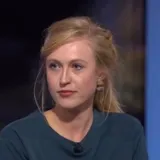Please note: this event has passed
This book offers a ten-year perspective on ongoing and evolving practices of digital activism across the Middle East and North Africa, drawing on interviews and ethnographic evidence collected between 2012 and 2022. It examines the shifting narrative around digital activism in the region, from the wake of the 2011 uprisings to the 2019 series of protests coined 'the second wave of the Arab Spring'. It considers how media activists navigate the transition from the emergent to the mainstream in a climate of contentious politics, following the civil mobilisations of the pro-revolutionary youths in Tunisia, Egypt, and Lebanon. It outlines the particularities of these three different political contexts and media environments, featuring case studies of the Tunisian blogosphere, online campaigning in the Egyptian elections and interviews with social media activists. In light of this empirical evidence, the book offers a critique of the increasing prevalence of a security perspective through which online activism has been viewed and its deleterious effect on digital political engagement in the region.
Book author:
Dounia Mahlouly
Dr. Mahlouly is a Lecturer and Course convenor for SOAS postgraduate courses 'Studies in Global Digital Cultures' and 'International Political Communication'. She designed and convenes the course entitled 'Prejudice, Conspiracy and Misinformation: Understanding the Debate around '(Post)-Truth' as part of SOAS MA programme in Global Media and Communications. Dounia is the author of 'Digital Political Cultures in the Middle East since the Arab Uprisings' and the Founder of the 'Middle East Research Hub' (merh.org), a non-profit association disseminating social science research applied to the Middle East and North Africa region. She completed her PhD at the University of Glasgow, in partnership with the American University in Cairo in 2015. Her PhD research (2015) investigated the evolving communication strategy of leading political actors campaigning in post-revolutionary Tunisia and Egypt. Before joining SOAS Centre for Global Media and Communications, she conducted her postdoctoral research at King's College London. Simultaneously, she worked as a Senior Research Associate for The Open University (OU).
Discussant:
Inga Kristina Trauthig
Dr. Trauthig is the head of research of the Propaganda Research Lab at the Center for Media Engagement (CME) at The University of Texas at Austin and an associate with the Institute of Middle Eastern Studies (IMES) at King’s College London. Previously, she has been a research fellow with the International Centre for the Study of Radicalisation (ICSR) at the Department of War Studies at King’s College London and received an MLitt from the University of St Andrews in Middle Eastern, Caucasus and Central Asian Security Studies.
She is interested in understanding violent and non-violent extremism, the manipulation of political competition as well as other societal impacts of emerging technologies. Over the last few years, she has mainly focused on the Middle East and North Africa, particularly Libya. She is also an associate with the Konrad Adenauer Foundation (KAS) or Candid Foundation in Berlin. Previous positions include an associate fellowship at Al Sharq Forum Istanbul, a visiting researcher position at George Washington University in Washington D.C. or the United States Institute of Peace (USIP) in Tunisia. Her work has been featured by outlets like Al Jazeera, BBC, CNN, Houston Chronicle, Foreign Policy, and The Washington Post.
Chair for Q&A with audience:
Dina Matar
Dr. Matar is a professor of Political Communication and Arab Media at the Centre for Global Media and Communication at SOAS. She has an MSc in Comparative Politics (LSE) and a PhD in Media and Communications (LSE). My PhD is from the London School of Economics. She has conducted research in the Arab World, particularly Palestine, Jordan, Lebanon and Syria. Before joining academia, I worked as a foreign correspondent covering the Middle East and then an editor working on the Middle East, Europe and Africa. Her primary research interest is in the intersection of communication and politics with a focus on the marginal and the oppressed as well as the relationship between structure and power in the Middle East. Her work and teaching are interdisciplinary, drawing on culture and media studies, politics, visual cultures, Islamist politics, oral history, area studies, diasporas, memory cultures and gendering communication. She has written two monographs, edited two books and written book chapters and articles in peer reviewed journals. The material from her first book “What it Means to be Palestinian” has been used as the basis for an animation movie which has received several awards. She is currently working on the sequel to that book focusing on the years from the Oslo agreement to the present. She has supervised 15 PhD students to completion. She is the chair of the Centre for Palestine Studies and the SOAS Academic Assembly. She is the founding editor of the Middle East Journal of Culture and Communication and editor of the Media, War and Conflict journal. She is co-editor of the SOAS Palestine Studies book series and the new book series, Political Communication and Media Practices in the Middle East and North Africa.
Event details
S-1.06Strand Building
Strand Campus, Strand, London, WC2R 2LS

